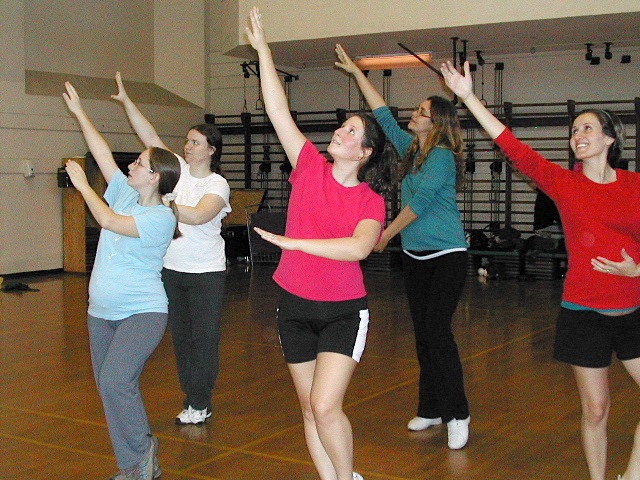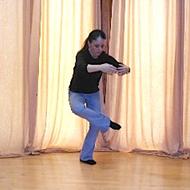Being a new parent is tough. There are lots of sleepless nights, and a new baby in the house that can’t quite tell you what she needs — to eat, to sleep, to poop. Perchance all three.

While new moms often focus exclusively on their babies, it’s good to remember that moms are recuperating from birth and need to focus on their own health and wellness as well. Think of it as the oxygen mask rule on an airplane: You have to put on your own oxygen mask before putting one on your child. In other words, you have to be healthy yourself in order to be the best parent to your kids.
Every mom will have her own path to health during the 4th trimester, the three months after she gives birth. Ann Cowlin, an expert on women’s health and the founder of Dancing Thru Pregnancy (a Physiquality partner), says there are three things that will affect how quickly a mom can return to exercise: her prenatal fitness level, the difficulty (or lack thereof) of the birth, and how mom and baby adapt after the birth.

Ann points out that walking is a great way to ease a body back into exercise after birth. You can start by taking short walks at the hospital while you’re still recuperating. Once you get home, plan evening walks with your partner or a friend to create a habit of exercise. Make sure that you’re eating healthy food and paying attention to how you hold and carry the baby, protecting your back and posture. And pay attention to your abdominal muscles; women recuperating from pregnancy can develop diastasis recti, a separation of the abdominal muscles. If your doctor diagnoses you with this condition, a physical therapist may be able to give you some exercises to correct this at home.
By the time the baby is four to six weeks old, most moms will be strong enough for more strenuous exercise. Classes like those offered through Dancing Thru Pregnancy help new moms build their strength gradually, making injury less likely. Regular exercise will help women lose baby weight and feel better and stronger.

As you return to exercise, Ann cautions to pay attention to your body. If you workout one day and have more lochia, or vaginal discharge, than usual, it’s most likely a sign that you’ve done too much too soon and should slow down. If you have a fever or hot spots on your legs, call your doctor as you might have a blood clot or serious issue. And some moms, particularly those that gave birth vaginally, experience post-pregnancy incontinence. A physical therapist can work with you to strengthen your pelvic muscles to keep this from happening, or at least reduce its frequency.
Ann reminds new moms to be patient. Listen to your body. Progress your exercise regimen gradually to allow your body to heal. Forgive yourself if you skip a workout because the baby was up all night and you chose to nap instead. And don’t forget to consult with your physical therapist, whose training in the way your body moves and functions will help you regain your health after pregnancy. Use our clinic locator below to find the Physiquality therapist nearest you.
Thank you to our contributors:

Ann Cowlin, MA, CSM, CCE, is the creator of Dancing Thru Pregnancy, one of Physiquality’s partner programs. Ann is the author of Women’s Fitness Program Development, a guide to creating girls’ and women’s health and fitness programming, and is the expert consultant for the U.S. Army’s Pregnancy and Postpartum Train the Trainer Program.
Groce, Jessica. How to start exercising after giving birth. New York Times.
Horsager-Boehrer, Robyn. What all pregnant women should know about blood clots. UT Southwestern Medical Center, June 19, 2018.
Physiquality.
- Walk more, be healthier. March 7, 2018.
- Working out while baby is sleeping. August 18, 2015.
- How to carry a baby without breaking your back. November 3, 2014.
- Reducing the risk of post-pregnancy incontinence. January 11, 2013.
Pregnancy: Physical changes after delivery. Cleveland Clinic, January 1, 2018.
Mayo Clinic
- Tobah, Yvonne Butler. Why do abdominal muscles sometimes separate during pregnancy?
- Exercise after pregnancy: How to get started.
Dancing Thru Pregnancy.
- Post-partum exercise: Creating your 3rd body. May 24, 2011.
- Pregnancy pathway: Importance of postpartum fitness. March 10, 2010.